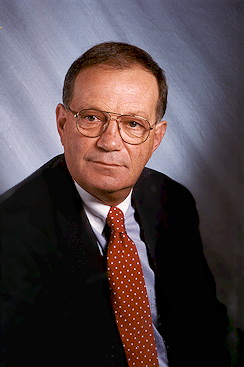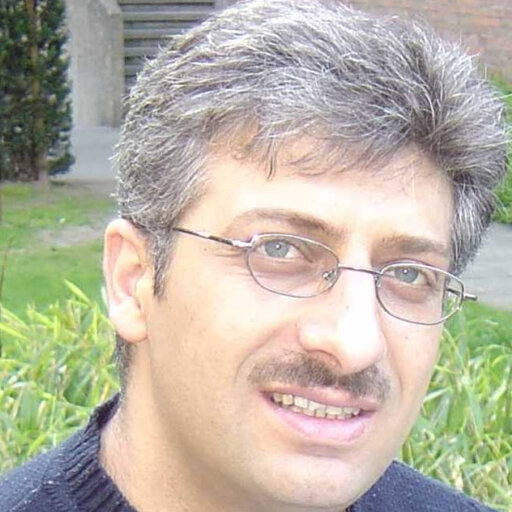Coming soon…
The keynote speakers of ICOEE 2017 are as follow:
Metamutator Does ≈ All
Prof. Izzet Cem GÖKNAR
Işık University, Istanbul, Turkey
IEEE Life Member

Abstract: A recently introduced chameleon like 4-port, the Metamutator, with a very basic port description (almost a 4×4 identity matrix) observed in many circuit configurations, but incognito to its users, will be presented and its many realizations/applications exhibited.
When n (1 ≤ n≤ 4) of its ports are properly terminated then the resulting (4-n)-port behaves like an oscillator, a transconductance/transimpedance amplifier, a universal filter, a mutator for n=2 (hence the prefix Meta), can be used to simulate Memcapacitors, Meminductors, Memristors (Memstors) for n=3, becoming a MOS-only quadrature oscillator for n=4.
Its realization, using commercially available Integrated Circuits(IC) like Current Conveyors±, Current Followers, Current Following Operational Amplifiers along with two newly developed IC, an analog Adder and a Subtractor with six MOS transistors each thus being minimal among all realizations, will be offered and compared.
Simulation of circuits for some of the applications mentioned in the first paragraph will be displayed using TSMC 0.25 µm post-layout process parameters with ±1.25 V supply voltage and shown to be in conformity with their expected signature. Finally, as opposed to the Voltage Inverting Metamutator (VIM) presented above, a recently discovered Current Inverting Metamutator (CIM) will be introduced and shown to possess very similar properties to those of VIM.
Biography: I. Cem Göknar was born in Istanbul, Turkey. He received the B.Sc. and M.Sc. degrees from Istanbul Technical University, Turkey, and the Ph.D. degree from Michigan State University, East Lansing, Michigan, USA in 1969.
He was a Visiting Professor at the University of California, Berkeley; University of Illinois at Urbana-Champaign; University of Waterloo, Canada; Technical University of Denmark at Lyngby; and a Full Professor at Istanbul Technical University from 1979 to 2000.
Currently he is a Professor at the EE Department of Işık University and was the Electronics and Communications Engineering Department Founding Head, at Dogus University, Istanbul, Turkey between 2000-2015. Prof. Göknar is a Member of European Circuit Society Council, a Life Fellow of IEEE and Member of the IEEE Technical Committee on Nonlinear Circuits and Systems, and IEEE-CAS Chapter Chair, Turkey Section. He is mainly interested in circuits, systems and signal processing (linear as well as non-linear).
Industry 4.0: The Cyber Physical Products and Systems Era
Prof. A. R. Al-Ali
American University of Sharjah, UAE
Abstract: Information technology, computer engineering and electrical engineering professionals are among the major contributors to the shift from industry 3.0 to industry 4.0. We are witnessing an emerging paradigm shift in wide range technogies such as internet of things, cloud computing.
As Klaus Schwab, founder and executive chairman of the world executive forum, stated that Industry 4.0 revolution combines physical, digital and biological systems resulting breakthroughs in business models and reshaping production, consumption and transportation systems.
Internet of things and cloud computing are emerging as key enablers that provides the platform for industry 4.0 and smart cities services.
The talk will highlight the road map from industry 1.0 to industry 4.0, role of internet of things and cloud computing in the cyber physical projects and systems.
Biography: Professor A. R. Al-Ali (SM IEEE) received his Ph.D. in electrical engineering and a minor in computer science from Vanderbilt University, Nashville, TN, USA, 1990; Master degree from Polytechnic Institute of New York, USA, 1986 and B.Sc.EE from Aleppo University, Syria, 1979. From 1991-2000, he worked as an associate /assistant professor in KFUPM, Saudi Arabia.
Since 2000 and till now, he has been a professor of computer science and engineering at the American University of Sharjah, UAE. His research and teaching interests include: embedded systems hardware and software architectures, smart homes automations, smart grid evolutions and development, smart factories and cities.
Dr. Al-Ali has more than 100 conference and journal publications including two USA and European Patents. Professor Al-Ali has been invited to deliver keynote speeches on the recent evolution and development in the smart grid, smart cities, industry 4.0., internet of things and embedded systems in several local and international conferences (URL: https://www2.aus.edu/facultybios/profile.php?faculty=aali).
Compressive Sensing for Narrow-Band Interference cancellation in OFDM Systems
Assoc. Prof. Imad Barhumi
United Arab Emirates University, UAE

Abstract: Orthogonal-frequency-division-multiplexing (OFDM) is a multi-carrier modulation technique that is adopted in 4G mobile broadband standards and wireless-local-area-network (WLAN) standards such as IEEE 802.11a/g/n/ac.
Narrow-band interference (NBI) arises in OFDM-based wireline and wireless communication systems. NBI is generated by licensed or unlicensed systems utilizing the same frequency band. For example, in LTE-A systems, NBI can be generated from different sources such as the narrow-band-internet-of-things (NB-IoT) system with in-band mode occupying some sub-bands out of the LTE-A band.
NBI degrades the performance of OFDM systems which motivates the need for mitigation techniques to reduce its effect. NBI is a sparse signal in the frequency domain (FD), hence, compressive sensing (CS) framework can be used to recover the NBI and cancel it before detecting the transmitted signal.
Biography: Imad Barhumi, received the B.Sc. degree in electrical engineering from Birzeit University, Birzeit, Palestine, in 1996, the M.Sc. degree in telecommunications from the University of Jordan, Amman, Jordan, in 1999, and the Ph.D. degree in electrical engineering from the Katholieke Universiteit Leuven (KUL), Leuven, Belgium, in 2005.
From 1999 to 2000, he was with the Department of Electrical Engineering, Birzeit University, as a Lecturer. After his Ph.D. graduation, he was a Postdoctoral Research Fellow for one year with the Department of Electrical Engineering, KUL.
He is currently an Associate Professor with the Department of Electrical Engineering, United Arab Emirates University, Al Ain, United Arab Emirates. His research interests include signal processing for mobile and wireless communications, cooperative communications, resource allocation and management in wireless communications and networking and game theory. He is a senior member of IEEE.
